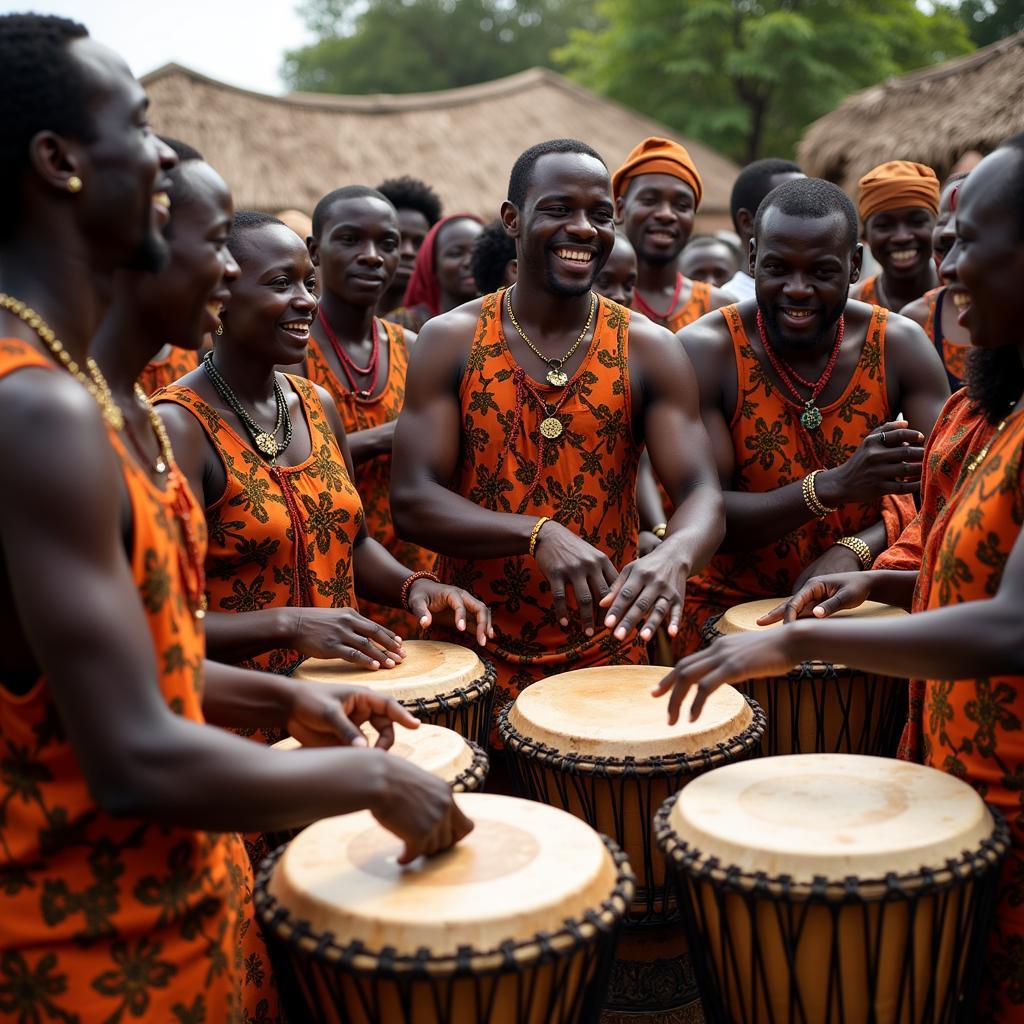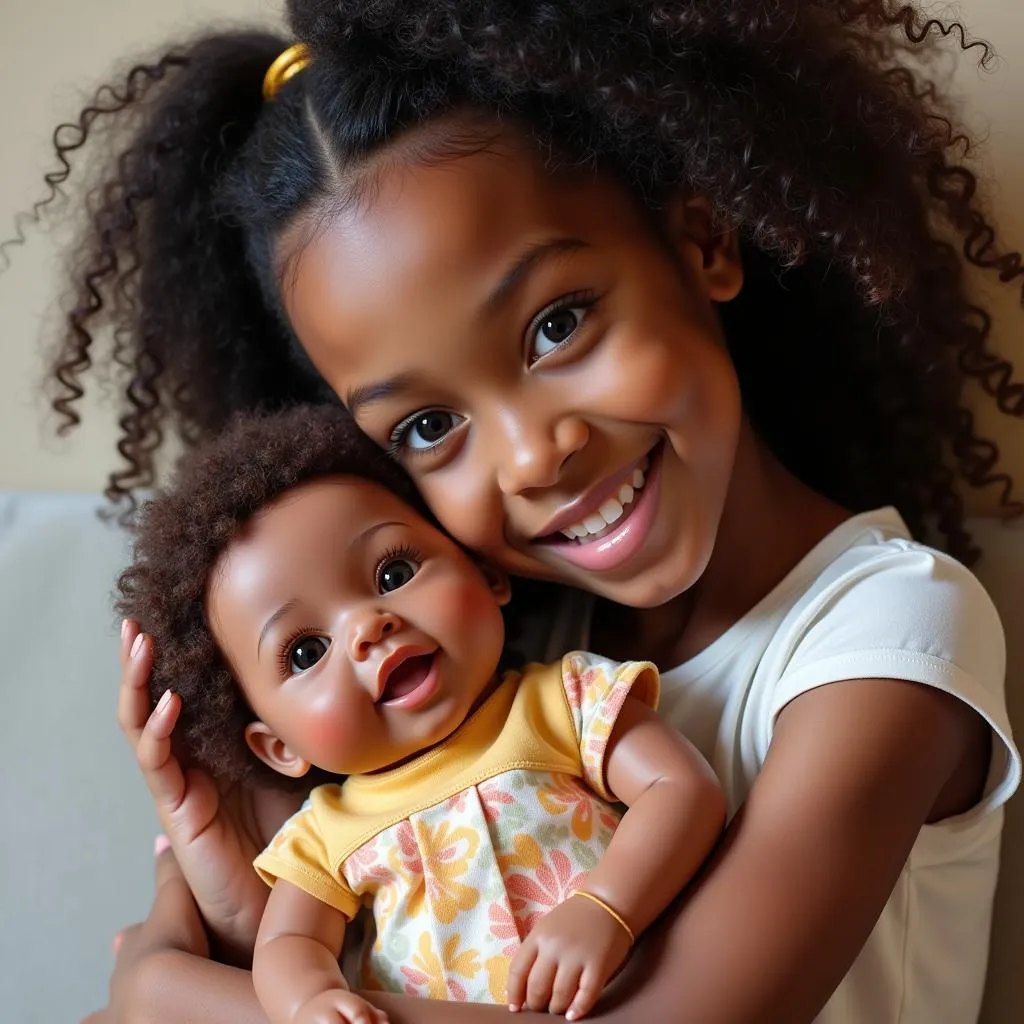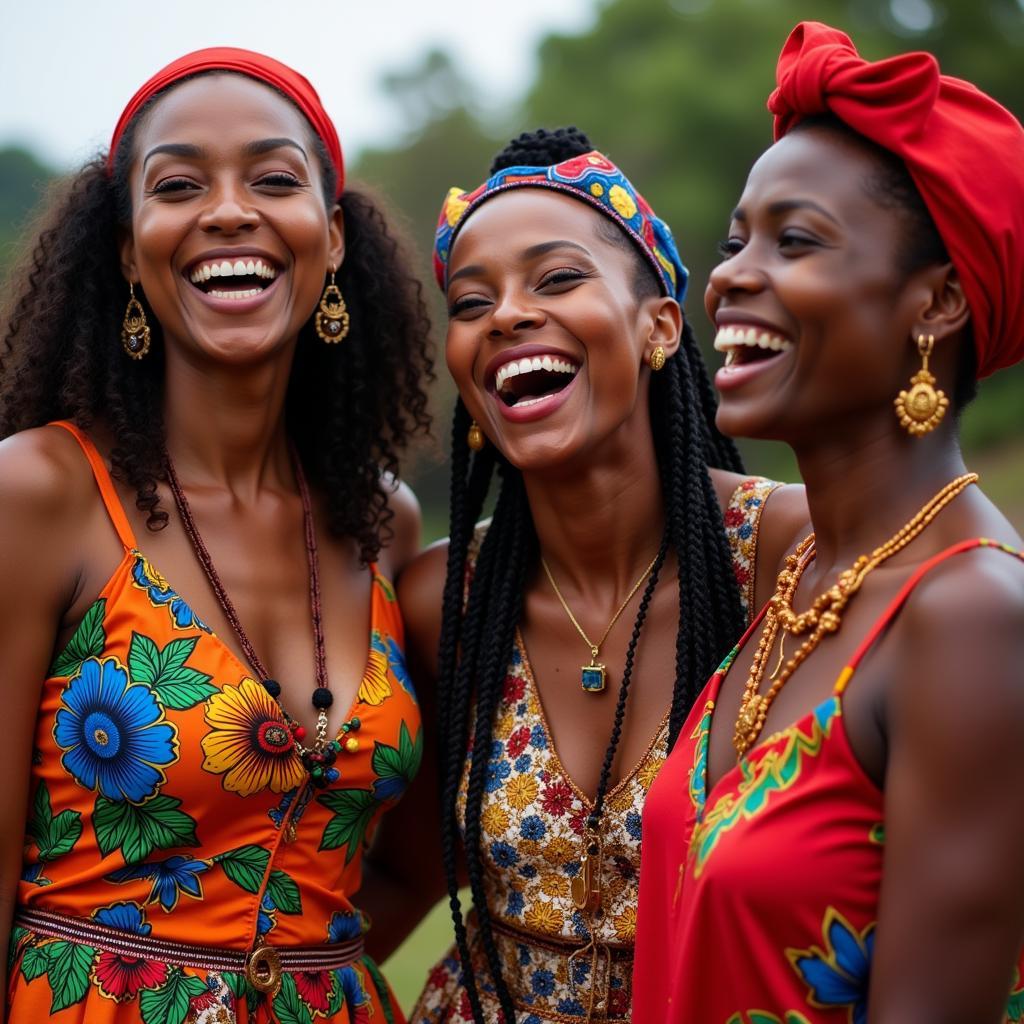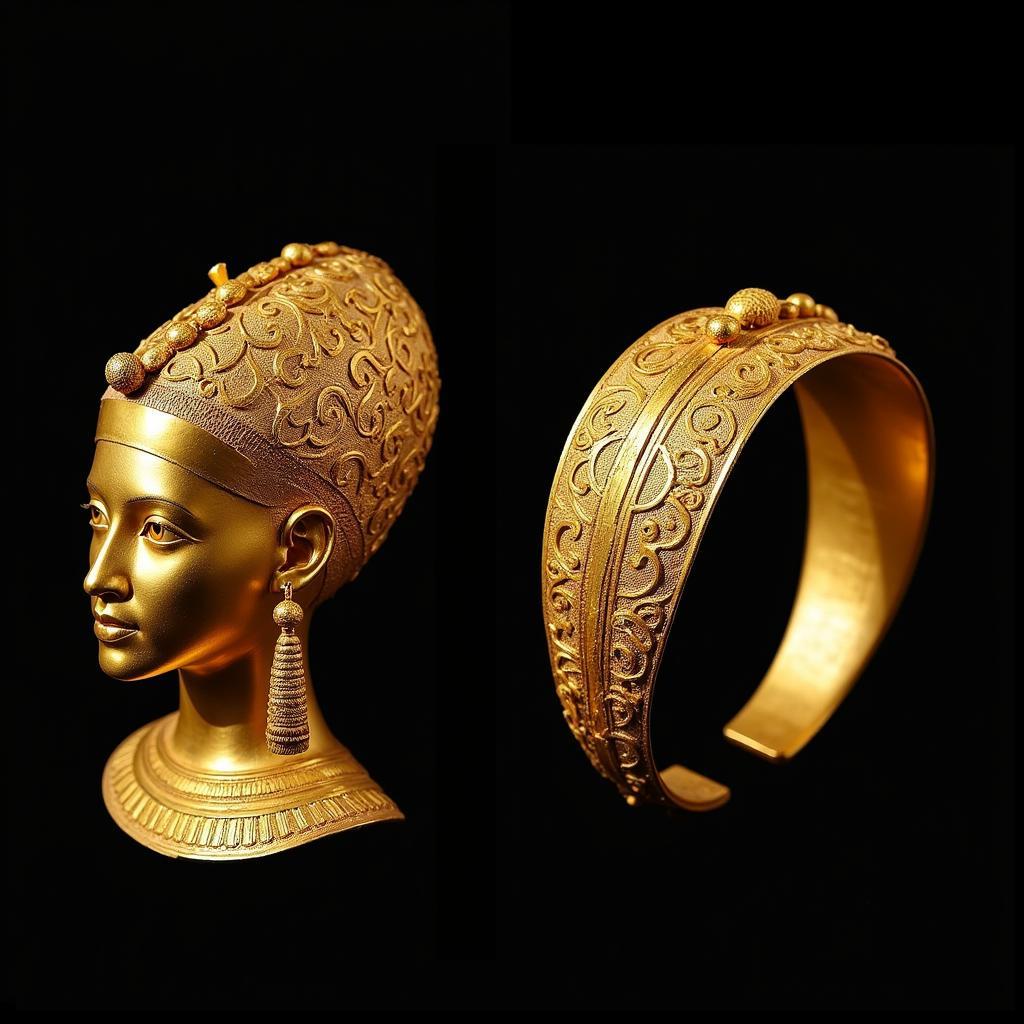African Jungle Life Marriage: Traditions and Customs
Deep within the heart of Africa, where lush jungles paint the landscape and wildlife thrives, exists a rich tapestry of cultural traditions surrounding marriage. These traditions, passed down through generations, offer a fascinating glimpse into the lives and beliefs of communities who call the African jungle home. This exploration of “African Jungle Life Marriage” delves into the unique customs, rituals, and beliefs that shape these unions, celebrating the diversity and resilience of love and commitment in challenging environments.
Courtship and Betrothal in the Jungle
In many African jungle communities, marriage is not simply a union of two individuals, but a sacred bond that ties families and even entire villages together. As such, courtship often involves a complex interplay of cultural norms and traditions. While love marriages are becoming increasingly common, arranged marriages, where families play a significant role in selecting partners for their children, still hold cultural significance in many regions.
Courtship rituals can be elaborate and varied, from secret rendezvous to public displays of affection. For example, among the Himba people of Namibia, young women wear intricate hairstyles and jewelry to signal their availability for marriage. Gift-giving, often involving livestock or handcrafted goods, is an integral part of the courtship process, symbolizing the prospective groom’s commitment and ability to provide for his future wife.
Bridal Dowry and Groom’s Wealth
The concept of dowry, where the bride’s family provides gifts to the groom’s family, or bridewealth, where the groom’s family offers gifts to the bride’s family, is prevalent in various forms throughout Africa. In many jungle communities, these exchanges are not viewed as a transactional purchase but as a symbol of respect, appreciation, and a way to strengthen the alliance between the two families.
The specific items involved in dowry or bridewealth vary significantly depending on the community. Livestock, such as cattle or goats, are common, as they represent wealth and prosperity. Other gifts might include farming tools, textiles, or traditional crafts, reflecting the cultural values and economic activities of the community.
The Sacred Ceremony: A Union Blessed by Nature
Wedding ceremonies in African jungle communities are often vibrant celebrations that can last for days, filled with music, dancing, and feasting. These ceremonies are deeply rooted in tradition, incorporating ancient rituals that honor ancestors and celebrate the fertility of the land.
One common thread that runs through many jungle wedding ceremonies is the profound connection to nature. Ceremonies might be held beneath sacred trees, near waterfalls, or in clearings within the rainforest, symbolizing the couple’s harmony with the natural world and seeking blessings from the spirits that reside within it.
Life as One: Roles and Responsibilities
After the wedding ceremony, the newly married couple typically moves into their own home or establishes a new household within a larger family compound. The division of labor within the household often follows traditional gender roles, with men responsible for hunting, farming, or other forms of income generation, while women take on the roles of childcare, cooking, and maintaining the home.
However, these roles are not always rigid and can vary depending on the specific community and individual circumstances. In some jungle communities, women may participate in hunting or fishing alongside men, while men may contribute to childcare and household chores.
Facing the Challenges: Resilience and Adaptation
Life in the African jungle is not without its challenges. Couples must work together to overcome obstacles such as harsh weather conditions, limited access to healthcare, and the ever-present need to protect their families and livelihoods from wild animals.
Through it all, the bonds of marriage provide strength, support, and resilience. Couples rely on each other for emotional support, practical assistance, and shared decision-making, facing the challenges of jungle life as a united front.
Conclusion
Marriage in the African jungle is a testament to the enduring power of love, tradition, and human resilience. From the intricate courtship rituals to the vibrant wedding ceremonies and the shared challenges of daily life, these unions reflect the rich cultural tapestry and the deep connection to nature that characterize these communities. As we’ve explored the fascinating world of “African jungle life marriage,” we gain a deeper appreciation for the diverse ways in which love and commitment are expressed and celebrated around the world.
FAQs about African Jungle Life Marriage:
-
Are all marriages in African jungle communities arranged?
While arranged marriages still hold cultural significance in some regions, love marriages are becoming increasingly common. -
What is the role of elders in jungle marriages?
Elders play a vital role in matchmaking, officiating ceremonies, and providing guidance to newly married couples. -
How are marriages impacted by modernization?
As access to education and technology expands, marriage traditions in some jungle communities are evolving to reflect changing societal norms. -
Do women have a say in their marriages?
The level of women’s autonomy varies greatly depending on the specific community. However, women often play influential roles within the family structure and contribute significantly to decision-making. -
What are some of the challenges faced by jungle marriages?
Couples living in the jungle face unique challenges, including environmental hazards, limited access to resources, and the constant need to adapt to changing circumstances.
For further inquiries about African culture and marriage traditions, or for travel assistance to experience these unique customs firsthand, do not hesitate to contact us.
Phone: +255768904061
Email: [email protected]
Address: Mbarali DC Mawindi, Kangaga, Tanzania.
We have a 24/7 customer service team ready to assist you.



